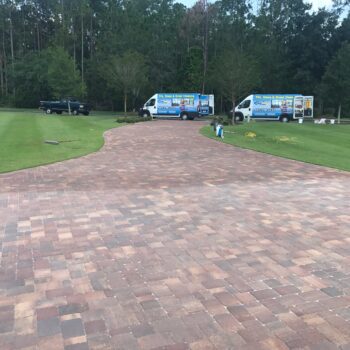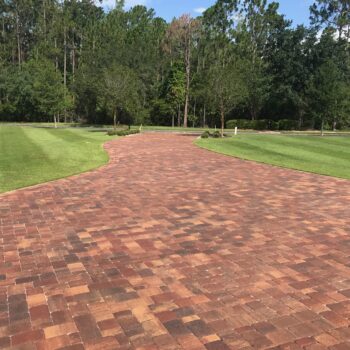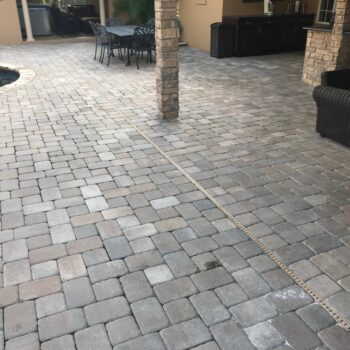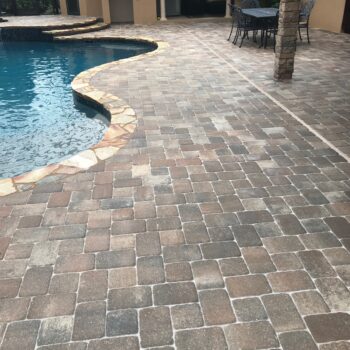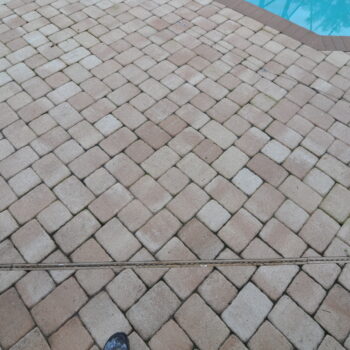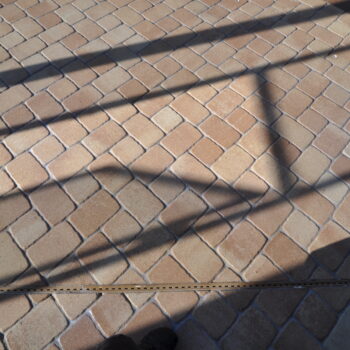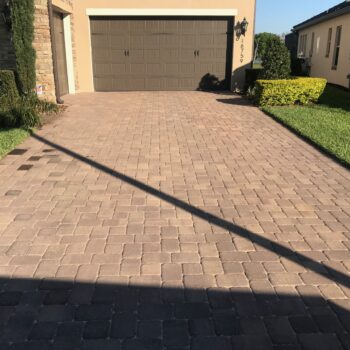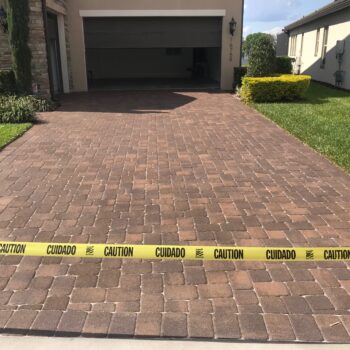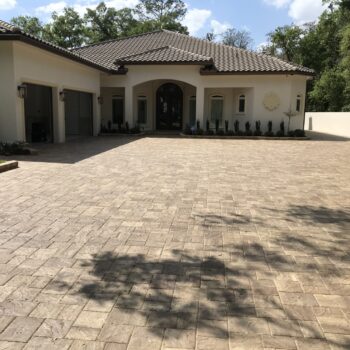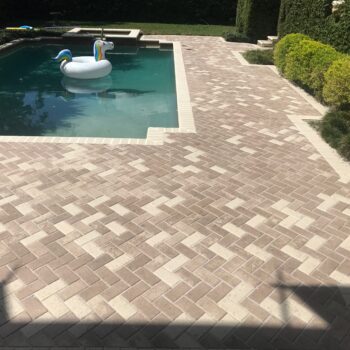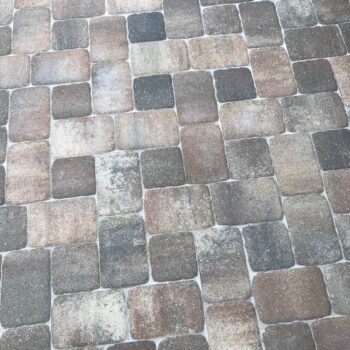Brick pavers are most commonly used for driveways, pathways, courtyards and pool decks. They come in a variety of colors and patterns and are made from concrete. One key to ease of maintenance and trouble free use is a proper installation. Most pavers are installed using a sand set method, meaning the base for which there are set on must be strong enough where they do not sink or move with heavy loads such vehicles. Proper materials, depth and compaction must be utilized to achieve this.
Most concrete pavers have little nubs on the side that dictate the spacing between the pavers. They are essentially installed tight to one another with the outer border pavers being mudset on a footer, or using a concrete curb to retain. This is what keeps the pavers from spreading apart. The sheer weight of the pavers and the tension of the surrounding pavers will keep them down.
Sand is placed between the pavers to further stabilize and mitigate erosion, weeds, mold/mildew and ant mines.
There are 2 different types of sealers that can be used to seal concrete pavers depending on the goals of the customer.
One is an impregnating, or penetrating sealer that soaks into the paver and provides repellency to water based soils and stains(hydrophobic). It will not change the color of the pavers (non enhancing type). It also will not do anything to lock, or harden the sand in the joints.
The second is a penetrating/film-forming sealer. We use Seal N Lock wet look, and it is a 2-part, water-based urethane. The advantages of this sealer are that it will enhance the colors of the pavers, meaning it will darken the paver like it has been wet with water. Other advantages are that it will harden and lock the sand in between the pavers. This will help keep the pavers looking cleaner longer. Depending on customer goals, paver age, absorbency rate, and how many coats are applied will dictate the final sheen level. We typically recommend 2-3 coats that would provide a no shine to a satin shine depending on lighting angles. Seal N lock allows vapor transmission, which is important in Florida so you do not trap moisture, possibly causing the classic whitening, or clouding of the pavers you may have seen on your neighbor’s driveway.


